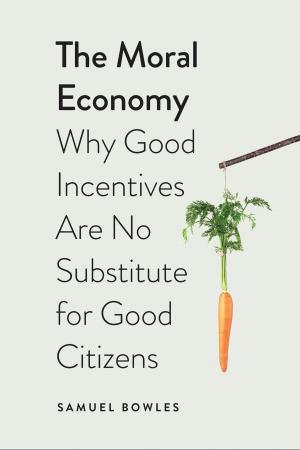| Author: | Ranko Marinkovic | ISBN: | 9780300168846 |
| Publisher: | Yale University Press | Publication: | November 16, 2010 |
| Imprint: | Yale University Press | Language: | English |
| Author: | Ranko Marinkovic |
| ISBN: | 9780300168846 |
| Publisher: | Yale University Press |
| Publication: | November 16, 2010 |
| Imprint: | Yale University Press |
| Language: | English |
In his semiautobiographical novel, Cyclops, Croatian writer Ranko Marinkovic recounts the adventures of young theater critic Melkior Tresic, an archetypal antihero who decides to starve himself to avoid fighting in the front lines of World War II. As he wanders the streets of Zagreb in a near-hallucinatory state of paranoia and malnourishment, Melkior encounters a colorful circus of characters—fortune-tellers, shamans, actors, prostitutes, bohemians, and café intellectuals—all living in a fragile dream of a society about to be changed forever.
A seminal work of postwar Eastern European literature, Cyclops reveals a little-known perspective on World War II from within the former Yugoslavia, one that has never before been available to an English-speaking audience. Vlada Stojiljkovic's able translation, improved by Ellen Elias-Bursac's insightful editing, preserves the striking brilliance of this riotously funny and densely allusive text. Along Melkior’s journey Cyclops satirizes both the delusions of the righteous military officials who feed the national bloodlust as well as the wayward intellectuals who believe themselves to be above the unpleasant realities of international conflict. Through Stojiljkovic's clear-eyed translation, Melkior’s peregrinations reveal how history happens and how the individual consciousness is swept up in the tide of political events, and this is accomplished in a mode that will resonate with readers of Charles Simic, Aleksandr Hemon, and Kundera.
In his semiautobiographical novel, Cyclops, Croatian writer Ranko Marinkovic recounts the adventures of young theater critic Melkior Tresic, an archetypal antihero who decides to starve himself to avoid fighting in the front lines of World War II. As he wanders the streets of Zagreb in a near-hallucinatory state of paranoia and malnourishment, Melkior encounters a colorful circus of characters—fortune-tellers, shamans, actors, prostitutes, bohemians, and café intellectuals—all living in a fragile dream of a society about to be changed forever.
A seminal work of postwar Eastern European literature, Cyclops reveals a little-known perspective on World War II from within the former Yugoslavia, one that has never before been available to an English-speaking audience. Vlada Stojiljkovic's able translation, improved by Ellen Elias-Bursac's insightful editing, preserves the striking brilliance of this riotously funny and densely allusive text. Along Melkior’s journey Cyclops satirizes both the delusions of the righteous military officials who feed the national bloodlust as well as the wayward intellectuals who believe themselves to be above the unpleasant realities of international conflict. Through Stojiljkovic's clear-eyed translation, Melkior’s peregrinations reveal how history happens and how the individual consciousness is swept up in the tide of political events, and this is accomplished in a mode that will resonate with readers of Charles Simic, Aleksandr Hemon, and Kundera.















